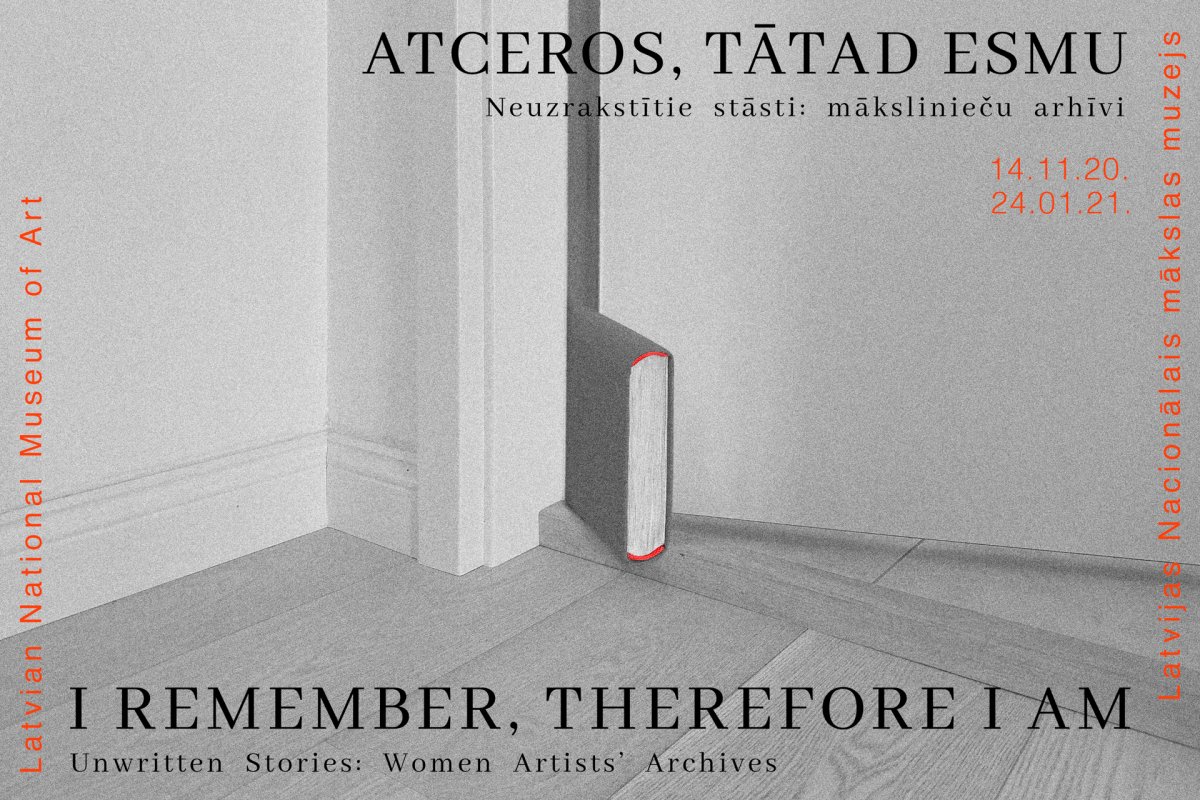
Graphic design: Evija Pintāne
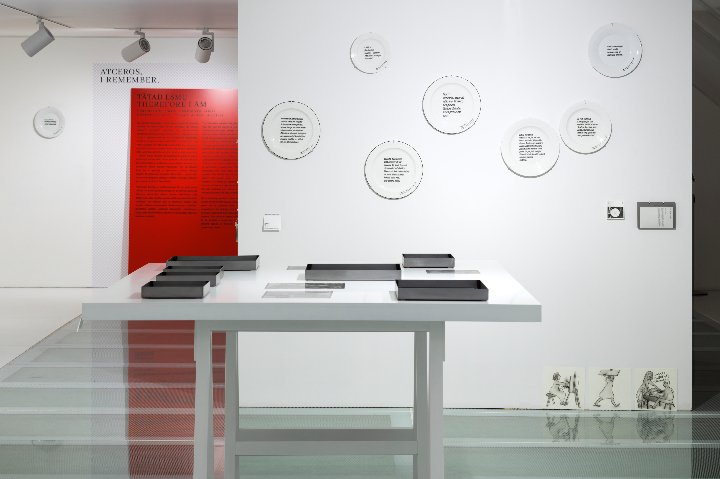
Exhibition view. Rasa Jansone & Ieva Melgalve. periodika.lpsr. (2020). Graphic intervention in the exhibition: Vivianna Maria Staņislavska
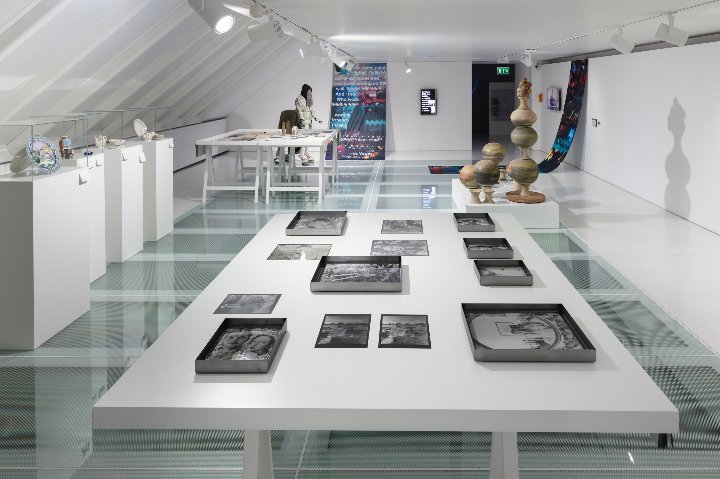
Exhibition view. Rita Einberga, Spēle (1972-1973), Olga Neimane Kateņeva. Painted porcelain. Marta Trektere & Anni Puolakka. Oestrus Youth. (2020). Photo: Ansis Starks
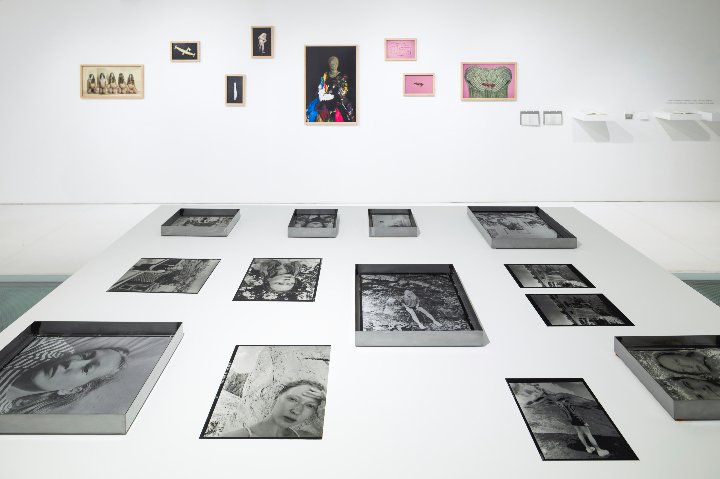
Evita Goze. Selfie (Since 2020). Liliana Zeic. Sourcebook. (Ongoing since 2020). Photo: Ansis Starks
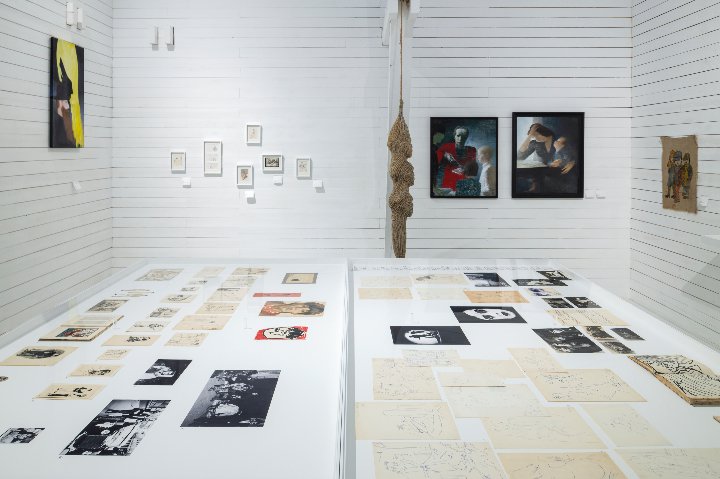
Artworks by Ruta Kreica, Liliana Zeic & Laima Eglīte. Photo: Ansis Starks
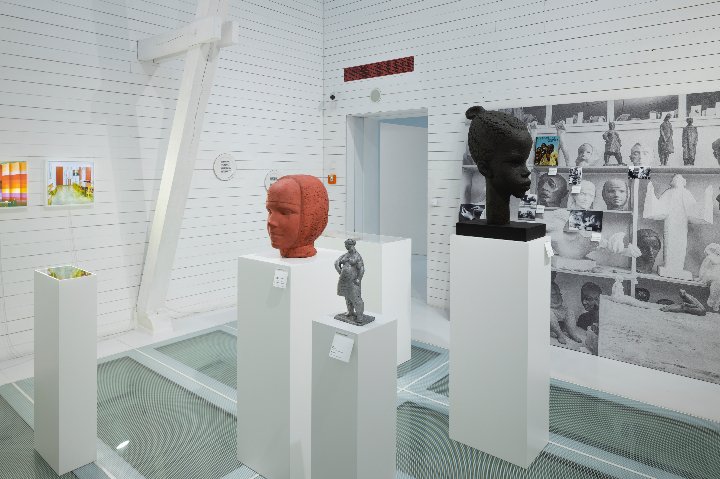
Rasa Kalniņa - Grīnberga. The Guinean (1964), Mason of the Jelgava Construction Board Anna Seļezņova (1965) and a shelf in the studio. Exhibition. Photo: Ansis Starks
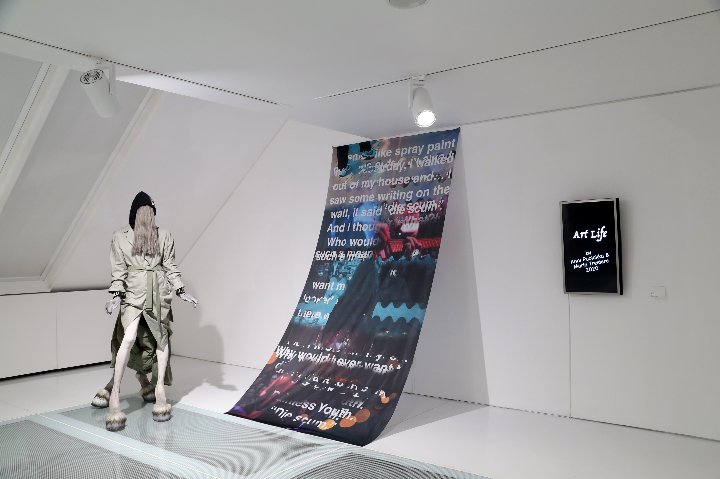
Anni Puolakka & Marta Trektere Oestrus Youth (2020) Foto: Margarita Ogoļceva.
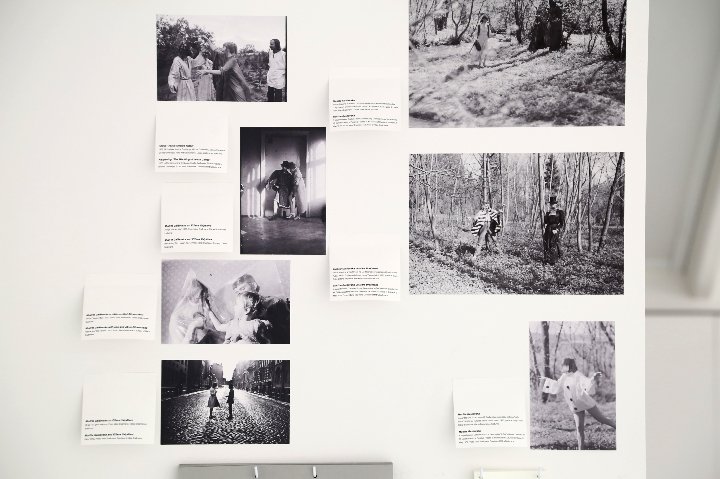
Film "Mudīte" by Mudīte Gaiševska. 1972. Video, 8 mm, 1 min 16 s. Archive of the Latvian Centre for Contemporary Art. Photo: Margarita Ogoļceva
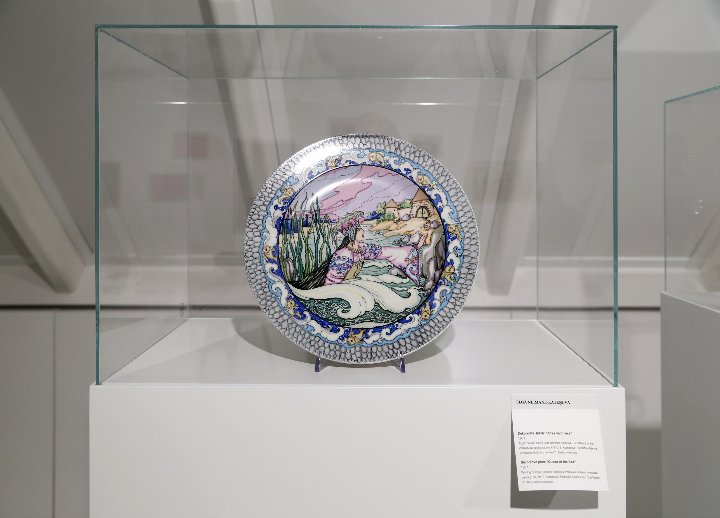
Decorative plate "Queen of the Sea". 1937. Painting by Olga Neimane-Kateņeva. Porcelain, shaped; overglaze painting. Photo: Margarita Ogoļceva
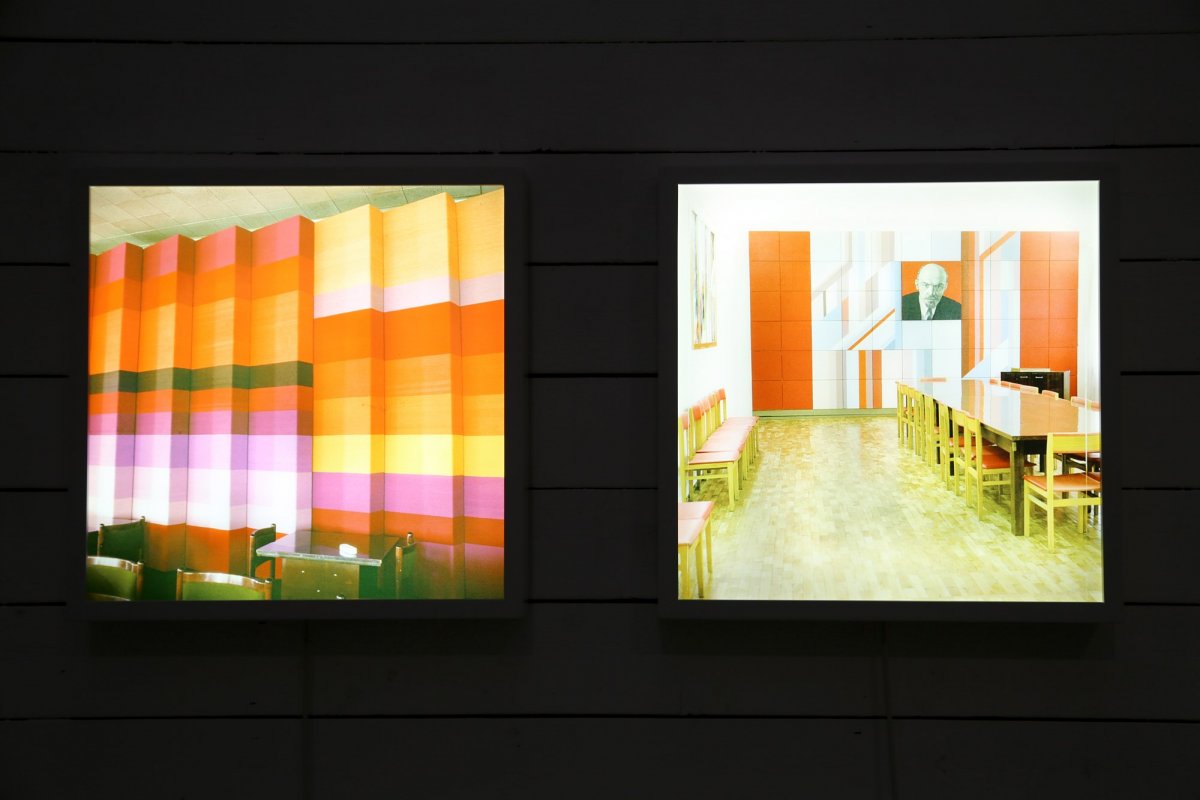
MAIJA ELIASE. Murals and stained glass. Images that were acquired by restoring photo slides from Maija Eliase’s family collection. Foto: Margarita Ogoļceva
From 14 November 2020 to 24 January 2021, the exhibition “I Remember, Therefore I Am. Unwritten Stories: Women Artists’ Archives” organized by the Latvian Centre for Contemporary Art will be on display in the 4th floor exhibition halls of the Latvian National Museum of Art. The exhibition will bring to the fore different possibilities of interpreting art history through the experiences of women artists in the context of art, social and political events during the Soviet period.
An insight into the exhibition “I Remember, Therefore I Am. Unwritten Stories: Women Artists’ Archives”
Video: Toms Taukulis
Video excursion at the exhibition with curator Andra Silapētere
Video: Juris Logins
Interview with curator of the exhibition Andra Silapētere by Adam Mazur at BlokMagazine
Interview with curator of the exhibition Andra Silapētere by Margaret Tali at ARTMargins Online
>> Essays<<
 I Remember, Therefore I Am. Andra Silapētere
I Remember, Therefore I Am. Andra Silapētere
 Soviet Latvian women artists in periodicals. Eight ways of forgetting. Adele Bea Cipste and Ieva Melgalve
Soviet Latvian women artists in periodicals. Eight ways of forgetting. Adele Bea Cipste and Ieva Melgalve
An opinion that has been already long-established is that in writing world history, within the framework of the dominant patriarchal and heteronormative social structures women's experiences have continuously been “omitted”. The current socio-political events on the global stage, especially as revealed by the pandemic, also point out a necessity to change familiar views on world order by shaping a more open, inclusive and equal society. Despite determined attempts to change prevailing views, there has been a continuous need to produce new knowledge that would emphasise the ignored stories. It also raises the question why do we continuously forget and marginalize the achievements of women?
By re-examining events in Latvia and Eastern Europe in the second half of the 20th century, which are marked by the Soviet period and its cultivated illusion of “gender equality”, the exhibition will offer opportunities for interpreting the recent past, by turning against the established hierarchies in shaping historical narratives. The exhibition will expand different artistic practices, facts, memories, human and aesthetic values, which can comment not only on the position and influence of women artists in the social and cultural scene, but can also reveal new stories of our shared history. The core of this exhibition is the artists Rita Einberga (1921–1979), Laima Eglīte (1945), Maija Eliase (1924–1991), Mudīte Gaiševska (1935), Ruta Kreica (1946), Rasa Kalniņa-Grīnberga (1936) and Olga Neimane-Kateņeva (1908–2001). Each of them represents different artistic strategies which are linked to the alternative culture and attempts of diversifying visual language, as well as to the range of creative interests within the official art scene. Whereas considering questions of feminism and gender in present-day context, original works specifically for the exhibition will be created by the artists Anni Puolakka (Finland) and Marta Trektere, Evita Goze, Rasa Jansone, Liliana Zeic (Poland).
The exhibition project is a collective research initiative which links ten researchers, with the purpose of understanding the ways how and what we can learn if we unite our knowledge, abilities and skills, and thereby bringing to attention questions of solidarity from the historical and today’s perspective. What shared considerations or circumstances can encourage the process of working together? What are the different approaches to knowledge that we can gain about our past in this way?
The exhibition is organized and produced by Latvian Centre for Contemporary Art (LCCA)
Curator: Andra Silapētere (LCCA)
Research group: Elīna Dzelzkalēja, Evita Goze, Rasa Jansone, Toms Ķencis, Ieva Laube, Ieva Melgalve, Justīne Savitska, Paula Stutiņa, Terēze Šulca, Iliana Veinberga.
Curator of the education programme: Māra Žeikare (LCCA)
Graphic design by: Evija Pintāne
Graphic intervention in the exhibition: Vivianna Maria Staņislavska
Exhibition design by: Liene Mackus and Artūrs Arnis
Project Coordinators: Adele Bea Cipste, Margarita Ogoļceva (LCCA) and Ieva Kalnača (LNMA)
Head of Communication: Paula Jansone (LCCA), Gundega Turnele (LCCA)
The project is co-funded by the Creative Europe programme of the European Union, the Ministry of Culture of the Republic of Latvia, the State Culture Capital Foundation, FRAME Contemporary Art Finland, Society Integration Foundation and the Foundation for Arts Initiatives.
Collaboration partners: Latvian National Museum of Art, Art Academy of Latvia, Riga Porcelain Museum of the Association of Culture Institutions of Riga City Council, Jelgava History and Art Museum of Ģederts Eliass, Zuzeum Art Centre, The Artists’ Union of Latvia, Latvian State Archive, The Latvian Department of the International Center of the Roerichs, PUBLICS, Fundacija Arton (Warsaw), Centre for Contemporary Arts (Ljubljana) and Office for Photography (Zagreb).